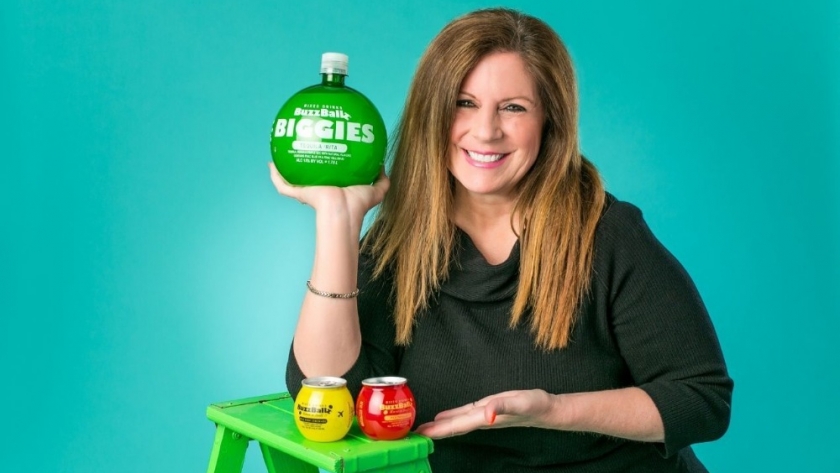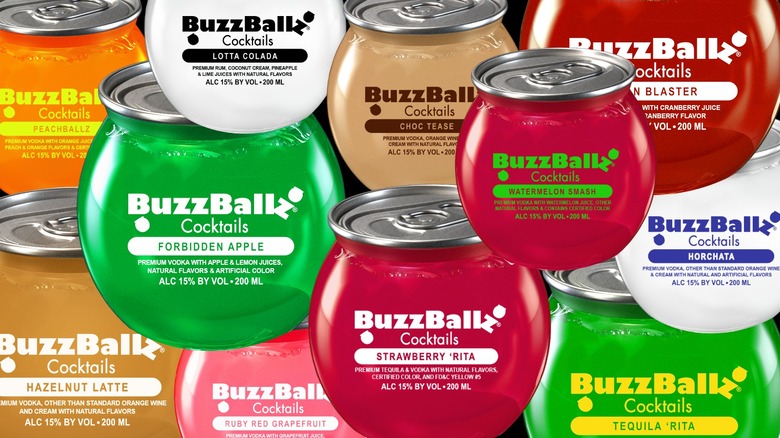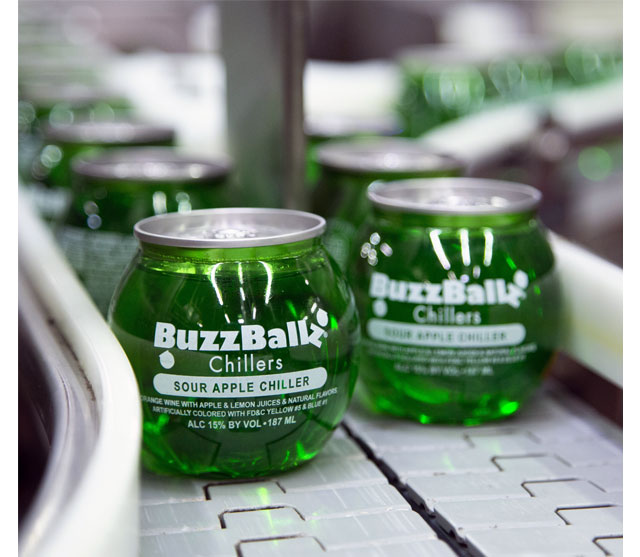
By Agroempresario.com
Vividly colored drinks in plastic spheres with names like "Crane Launcher" and "Forbidden Apple" fill shelves in supermarkets and gas stations across the United States. These ready-to-drink cocktails, known as BuzzBallz, started as a small venture and have grown into one of the largest brands in the $2 billion alcoholic beverage industry.
"I am living the American dream," says Merrilee Kick, founder and CEO of BuzzBallz. "We built a legacy. We became competitors in a space women had never reached."

Fourteen years after founding the brand, Kick has turned BuzzBallz into an industry powerhouse. The brand is not only distributed throughout the United States but is also sold in 29 countries, with annual revenues approaching $500 million, according to Forbes.
As BuzzBallz grew, Kick, 61, became one of the alcohol industry’s greatest success stories. This former public school teacher from Plano, Texas, did not sell any stake in the company but did transfer 24.5% each to her two sons, Alex and Andrew, now president and vice president of BuzzBallz.
Louisiana-based beverage conglomerate Sazerac acquired BuzzBallz in May in an all-cash deal Forbes estimates at a minimum of $500 million. While neither Kick nor Sazerac disclosed the amount, Forbes conservatively estimates Kick pocketed at least $400 million after taxes, placing her at number 84 on the annual list of America’s richest self-made women.

The sale to Sazerac is a remarkable achievement in a male-dominated industry. "It’s extremely rare to start something like this," says Alix Peabody, founder of canned wine brand Bev. "An exit of this scale and size, especially without any financing, is unheard of," she adds.
Profitable since its second year, BuzzBallz targets young adults or the young at heart. Sales are strong in the RTD (Ready-to-Drink) beverage market, one of the most competitive segments in the spirits industry, with numerous new entrants and long-standing rivalries among major brands.
The category grew by 30% year-on-year, and according to InsightAce Analytic, it is expected to reach $5 billion in sales by 2030.
"I didn’t sell because I didn’t like what I was doing or wanted to leave," Kick says. "I sold for exponential growth."
Kick attributes much of her drive to growing up in a family that endured multiple bankruptcies. In 2009, while grading papers by her pool, she conceived the idea of high-alcohol cocktails served in pool-proof plastic spheres. BuzzBallz launched in 2010, initially selling for $2.99 each.

Kick found a manufacturer in China to produce the containers and managed everything from loading trucks to serving samples in stores. With a $28,000 inheritance from her grandfather and a $178,500 SBA loan, she rented a "grungy" warehouse and hired an employee to handle production. Although BuzzBallz declared losses in its first year, by the second year, it had $1 million in revenue and $100,000 in profits.
The big break came in 2012 when a distribution agent suggested attending a wholesale fair. Kick and her eldest son Alex, then in college, drove from Texas to Las Vegas to work a $2,000 booth. The fair paid off: in one day, 15 states signed up for distribution.
Despite the positive response, Kick built BuzzBallz gradually in a sector dominated by large conglomerates.
In 2014, sales grew significantly in large stores and supermarkets. By 2016, BuzzBallz had annual revenues of $20 million, with cocktails becoming bestsellers at 7-Eleven and QuikTrip, as well as in sports stadiums and on airlines like Spirit. Later came H-E-B and Albertson's. By 2019, sales surpassed $100 million.

"My main goal was to be independent and give my kids something they could be self-sufficient with," Kick says. "Accepting private equity money was never part of my plan."
To maintain control over production, Kick moved manufacturing out of China and established it near BuzzBallz's headquarters in Carrollton. Her parent company, Southern Champion, also produces and sells alcoholic beverages to other retailers.
After turning down several investors, Kick decided to sell for growth. Three years ago, Sazerac considered her price too high but closed the deal within weeks in 2024.
With 1,000 employees and Sazerac’s backing, Kick believes BuzzBallz is built to last. The brand sold nearly 7 million cases last year and expects to double that figure by 2025.
"I didn’t sell because I didn’t like what I was doing or wanted to leave," Kick concludes. "I sold for exponential growth and because it’s selfish to hold onto it. It truly has legs."
